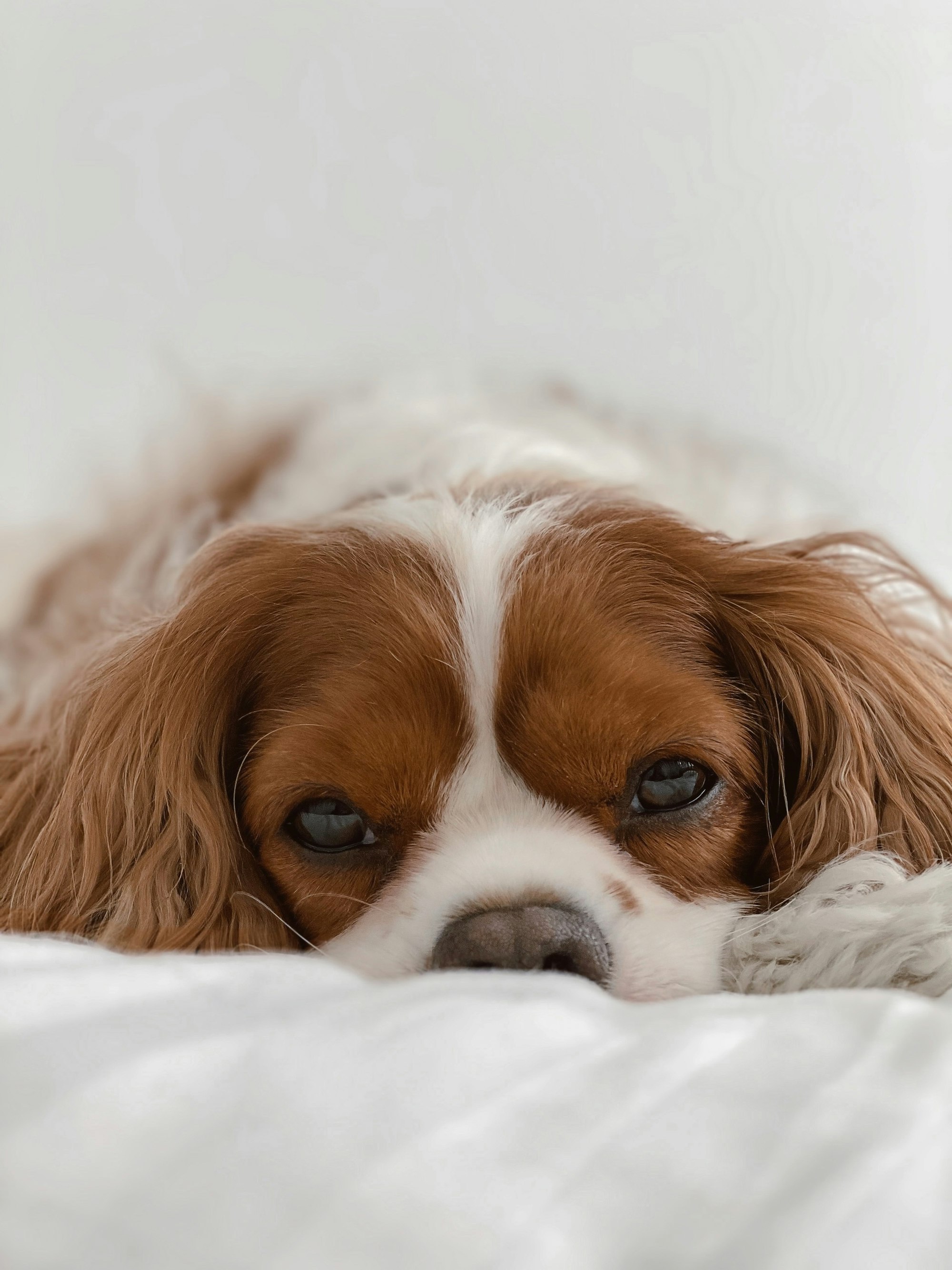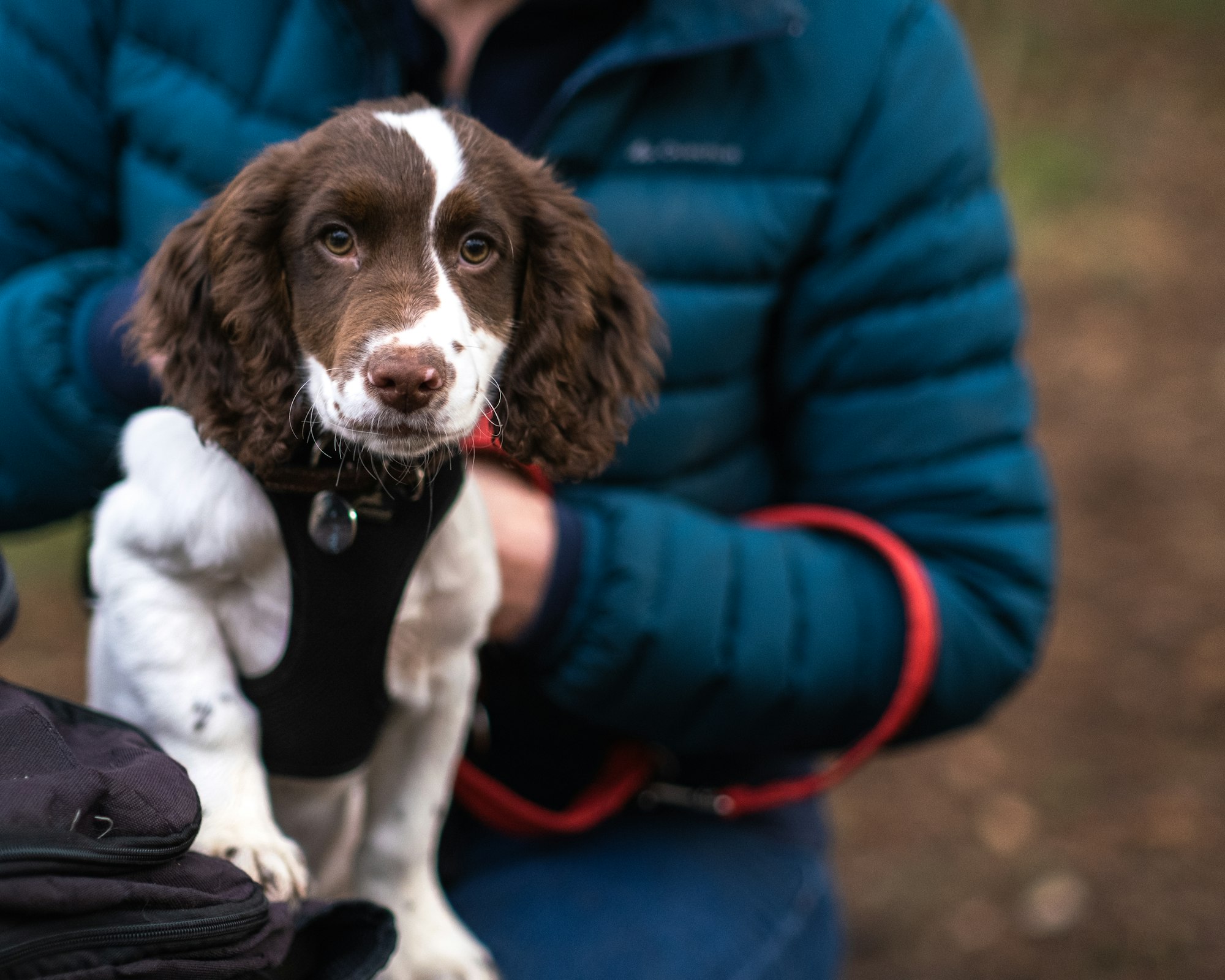Having a pet can bring immense joy and companionship to our lives. If you are considering adding a furry friend to your family, the King Charles Spaniel teacup is an excellent choice. With their small size, adorable appearance, and friendly demeanor, these pint-sized canines make for delightful companions. In this article, we will explore the wonderful world of King Charles Spaniel teacups, from their origins and characteristics to their care and training needs.
The King Charles Spaniel teacup descends from the larger King Charles Spaniel, which originated in England during the 17th century. These charming dogs were treasured companions of royalty and were often depicted in paintings alongside their noble owners. Over time, a smaller variant of the breed emerged, affectionately known as the teacup, due to its tiny size.
Physical Characteristics

King Charles Spaniel teacups are small, toy-sized dogs, weighing between 6 and 12 pounds (2.7 to 5.4 kilograms) when fully grown. They have a distinctive flat faces, expressive eyes, and a silky, medium-length coat that comes in various colors, including black and tan, ruby, tricolor, and blenheim. Their floppy ears and wagging tails add to their adorable appearance, making them irresistible to dog lovers.
Temperament and Personality
The King Charles Spaniel teacup is renowned for its delightful temperament and charming personality. These small dogs possess a friendly and gentle nature, making them wonderful companions for individuals and families alike. Here are some key aspects of their temperament:
· Affectionate: King Charles Spaniel teacups thrive on love and attention. They enjoy being close to their human companions and often seek out cuddles and affectionate gestures.
· Sociable: These teacups are social butterflies and love interacting with people and other animals. They are known for their friendly and welcoming demeanor, making them excellent pets for households with children or other pets.
· Easygoing: King Charles Spaniel teacups have a calm and easygoing disposition. They tend to adapt well to different environments and are generally not prone to aggression or excessive barking.
· Intelligent: Despite their small size, these teacups are intelligent and quick to learn. They respond well to positive reinforcement training methods and enjoy mental stimulation through interactive games and puzzle toys.
Health Considerations

While King Charles Spaniel teacups are generally healthy dogs, it is crucial to be aware of potential health considerations associated with the breed. Here are some key health factors to keep in mind:
· Heart Conditions: King Charles Spaniel teacups may be prone to certain heart conditions, such as mitral valve disease. Regular veterinary check-ups and monitoring can help detect and manage any potential heart-related issues.
· Obesity: Due to their small size and adorable appearance, it's necessary to monitor their diet and prevent obesity. Obesity can lead to various health problems and impact their overall well-being. Consult with your veterinarian to determine the appropriate portion sizes and feeding schedule for your teacup.
· Eye and Ear Health: The large, expressive eyes and floppy ears of King Charles Spaniel teacups require special attention. Regular cleaning and examination can help prevent infections and maintain good eye and ear health.
· Regular Veterinary Care: It is crucial to establish a relationship with a trusted veterinarian who can provide routine check-ups, vaccinations, and preventive care. Regular examinations and screenings can help detect any potential health issues early on.
By being proactive about your King Charles Spaniel teacup's health and well-being, you can ensure they lead a happy and fulfilling life as your beloved companion. Remember to provide them with a nutritious diet, regular exercise, mental stimulation, and the love and care they deserve.
Feeding and Nutrition
Proper feeding and nutrition are essential for the health and well-being of your King Charles Spaniel teacup. Providing a balanced and nutritious diet will support their overall growth, development, and vitality. Here are some essential considerations for feeding your teacup:
· High-Quality Dog Food: Choose a high-quality happy dog food specifically formulated for small breeds. Look for brands that list real meat as the primary ingredient and avoid those with excessive fillers and artificial additives.
· Portion Control: Follow the recommended feeding guidelines provided by the dog food manufacturer. Adjust the portions based on your teacup's age, weight, activity level, and overall body condition. Be mindful of overfeeding, as teacups are prone to weight gain.
· Meal Frequency: Divide your teacup's daily food intake into two or three smaller meals to support proper digestion and prevent bloating. Avoid leaving food out all day as free-feeding can lead to overeating.
· Fresh Water: Always provide your teacup with fresh and clean water. Monitor their water intake and ensure they have access to water throughout the day.
· Treats: Use treats sparingly and opt for healthy, dog-specific treats. Treats should not exceed 10% of your teacup's daily calorie intake to avoid excessive weight gain.
Remember to consult with your veterinarian for personalized feeding recommendations based on your teacup's specific needs.
Grooming Needs
Grooming is an essential aspect of caring for your King Charles Spaniel teacup, helping to maintain their coat's health and overall cleanliness. Here are some grooming needs to keep in mind:
· Brushing: The silky, medium-length coat of a King Charles Spaniel teacup requires regular brushing to prevent matting and tangling. Aim to brush their coat at least two to three times a week using a soft-bristle brush or a slicker brush. This will help remove loose hair, distribute natural oils, and keep their coat looking shiny.
· Bathing: Bathe your teacup as needed, typically every four to six weeks or when they get dirty. Use a mild, dog-specific shampoo and conditioner to keep their coat clean and smelling fresh. Be gentle during the bathing process, paying extra attention to their ears, paws, and sensitive areas.
· Ear Care: King Charles Spaniel teacups have long, floppy ears that can trap moisture and become prone to infections. Check their ears regularly for redness, odor, or discharge. Clean their ears with a veterinarian-recommended ear cleaner using a cotton ball or pad. Be cautious not to insert anything deep into the ear canal.
· Dental Care: Dental hygiene is required for teacups to prevent dental disease. Establish a regular teeth-brushing routine using a dog-specific toothbrush and toothpaste. Additionally, provide dental chews or toys designed to promote oral health.
· Nail Trimming: Regular nail trimming is essential to prevent overgrowth, discomfort, and potential injuries. Use a dog nail clipper or grinder to carefully trim their nails. Take care not to cut into the quick, which can cause bleeding and pain. If you are unsure, consult a professional groomer or veterinarian for assistance.
By incorporating regular grooming into your teacup's routine, you'll help keep them looking and feeling their best while maintaining their overall hygiene and health.
Exercise and Socialization Requirements
Despite their small size, King Charles Spaniel teacups have moderate exercise needs. Daily walks, playtime, and interactive toys will help keep them physically and mentally stimulated. They enjoy exploring their surroundings but should always be kept on a leash or in a secure, fenced area to ensure their safety. Engaging in activities together strengthens the bond between you and your furry companion.

Early socialization and training are vital for King Charles Spaniel teacups to develop into well-rounded dogs. Enroll them in puppy classes to expose them to different environments, people, and other animals. Positive reinforcement training methods work best with these intelligent canines. They respond well to praise, treats, and gentle guidance. Patience and consistency are key when teaching them basic obedience commands and proper behavior.
Living with a King Charles Spaniel Teacup
King Charles Spaniel teacups adapt well to apartment living due to their small size and moderate exercise requirements. However, they thrive in any loving home environment that provides them with attention, mental stimulation, and regular exercise. These dogs are sensitive to extreme temperatures, so ensure they are kept in a comfortable and temperature-controlled environment.
Common Behavioral Traits
King Charles Spaniel teacups are known for their friendly and affectionate nature. They form strong bonds with their human family members and may experience separation anxiety if left alone for extended periods. These dogs are eager to please and respond positively to positive reinforcement training methods. They may exhibit some stubbornness at times, but with patience and consistency, you can overcome any training challenges.
Choosing a King Charles Spaniel Teacup

When considering adding a King Charles Spaniel teacup to your family, it is critical to make an informed and responsible decision. Here are some key factors to consider when choosing a teacup:
1. Reputable Breeder: Find a reputable breeder who prioritizes the health and well-being of their dogs. Research breeders in your area and visit their facilities if possible. A responsible breeder will provide proper documentation and conduct health tests on their breeding dogs to ensure the puppies are healthy.
2. Health Screening: Inquire about the health screening conducted on the parent dogs. Ask for documentation of tests for common health issues such as heart conditions, eye problems, and other breed-specific ailments. A responsible breeder will be transparent and willing to share these details.
3. Observing the Parents: If possible, meet the parent dogs of the teacup puppy you are interested in. Observe their behavior, temperament, and overall appearance. This can give you an idea of the characteristics your teacup may inherit.
4. Puppy's Environment: Take note of the environment in which the puppies are raised. They should have access to a clean and spacious area with proper socialization opportunities. Puppies that are raised in a loving and stimulating environment are more likely to be well-adjusted and socialized.
5. Health Guarantee: Inquire about any health guarantees or warranties provided by the breeder. A reputable breeder will often offer a health guarantee, which shows their commitment to the well-being of their puppies.
6. Puppy Socialization: Ask the breeder about the socialization efforts they have made with the puppies. Early socialization is crucial for proper development and helps puppies adapt to various environments, people, and other animals.
7. Questions and Communication: Feel free to ask the breeder any questions you may have about the breed, their breeding practices, or the specific teacup puppy you are interested in. A responsible breeder will be open to answering your questions and providing guidance.

Remember, responsible breeding practices contribute to the overall health and well-being of the breed. Avoid purchasing teacup puppies from puppy mills or online sources without conducting thorough research. By choosing a reputable breeder and taking the time to find a healthy and well-cared-for teacup, you are setting the foundation for a happy and fulfilling relationship with your new furry companion.
Introducing Your Teacup to Your Home
Bringing a King Charles Spaniel teacup into your home requires some preparation. Set up a cozy and safe space with bedding, toys, food, and water bowls. Puppy-proof your home by removing any potential hazards and ensuring that electrical cords and small objects are out of reach. Gradually introduce your teacup to different rooms, allowing them to explore at their own pace while providing supervision.
Teacup-Proofing Your Living Space
As curious and agile dogs, King Charles Spaniel teacups can find their way into unexpected places. To ensure their safety, teacup-proof your living space by securing cabinets, blocking off access to hazardous areas, and using baby gates if necessary. Keep small objects, toxic substances, and plants out of reach. Creating a secure and comfortable environment will help prevent accidents and keep your teacup happy and healthy.
Conclusion
If you're seeking a small, affectionate, and charming companion, look no further than the King Charles Spaniel teacup. With their adorable appearance and loving personality, they make wonderful additions to any family. Remember to provide them with proper care, socialization, and training to ensure a happy and fulfilling life together. So, why wait? Start your journey with a King Charles Spaniel teacup and experience the joy they bring to your life.
Frequently Asked Questions
1. Are King Charles Spaniel teacups suitable for families with children?
Yes, King Charles Spaniel teacups are generally good with children. However, supervision is crucial to ensure gentle interactions between the dog and the child. Teach children to handle the teacup with care and respect their boundaries.
2. How often should I groom my King Charles Spaniel teacup?
Regular grooming is necessary to maintain the teacup's coat. Aim to brush their fur a few times a week and schedule professional grooming sessions every few months.
3. Do King Charles Spaniel teacups require a lot of exercises?
While they don't have high exercise requirements, King Charles Spaniel teacups still need daily walks and playtime to stay healthy and mentally stimulated.
4. Can King Charles Spaniel teacups live comfortably in apartments?
Yes, King Charles Spaniel teacups can adapt well to apartment living. However, they will still need regular exercise and mental stimulation to thrive.
5. Are King Charles Spaniel teacups prone to any specific health issues?
Yes, King Charles Spaniel teacups can be susceptible to mitral valve disease, a heart condition. Regular veterinary check-ups and a healthy lifestyle can help monitor and manage their health.

